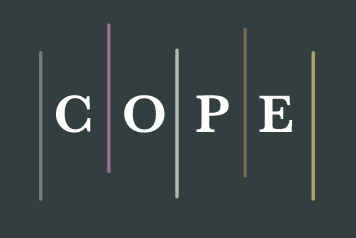Islamic-Based Model of Research Methodology: Trinity of Taḥqīq in Four Dialectics
DOI:
https://doi.org/10.58355/maqolat.v3i3.160Keywords:
Islamic-Based Model of Research Method and Methodology, Dialectics, Subject, Object, Trinity of TaḥqīqAbstract
The Islamic-Based Model of Research (taḥqīq) Methodology, is a research approach that integrates naql (the Quran and Sunnah) with a’ql (reasoning). How does this Islamic model operate, and how can it be applied to contemporary research? This scholarly article aims to address these questions through two key objectives. First, it seeks to identify the two fundamental components of taḥqīq: the subject (the researcher or moḥaqīq) and the object (the research topic). Second, it introduces the model, which is structured around four dialectical interactions between the subject and object, collectively referred to as the ‘trinity of taḥqīq’. By critically examining and refining existing Western-oriented research paradigms, this study aspires to advance and enrich their epistemological foundations.
Downloads
References
Al-Quran al-Karim
Akram Hassan, Shahir (2017) “Reasoning Methods based on the Science of Mantiq for Islamic Research Methodology”, International Journal of Academic Research in Business and Social Sciences, Vol. 7, No. 3, pp. 800-812.
Azram, M. (2011) “Epistemology-An Islamic Perspective”, IIUM Engineering Journal, 12(5), pp. 179-185.
Corbin, Henry (1994) The Man of light in Iranian Sufism, New York: OMEGA Publication.
Ebrāhīmī Dīnānī, Gholām-hossein (1394/2015) From Sensible to Intelligible, Tehran: Iranian Institute of Philosophy (in Persian).
Ebrāhīmī Dīnānī, Gholām-hossein (1396/2017) Up and Down of Philosophical Thinking, Tehran: Iranian Institute of Philosophy (in Persian).
Fafikov, Ildus; Akhmetova, Elmira (2020) “Methodology of integrated knowledge in Islamic economics and finance: collective ijtihad”, ISRA International Journal of Islamic Studies, Vol. 12, No. 1, pp. 115-129.
Golshani, Mehdi (2021) The Holy Quran and the Sciences of Nature, US: Maharishi International University (MIU) Press.
Gul, Waseem (2019) “Strategy: Can a Research Methodology Be Proposed from Islamic Sources of Knowledge?”, International Business Research, Vol. 12, No. 7, pp. 83-95.
Ja’farī, Mohammad-Taqī (1400/2021) Science and Religion in Intelligible Life, Tehran: The Allāmeh Jafari Institute (in Persian).
Junaid, Mughal M. (2015) “Methodology of Islamization of Human Knowledge: A Comparative Appraisal of Proposed Approaches”, Arts and Social Sciences Journal (ASSJ), Vol. 6, Issue 5, pp. 1-5.
Malkawi, Fathi Hasan (2014) Epistemological Integration: Essentials of an Islamic Methodology, London & Washington: The International Institute of Islamic Thought.
Moerer-Urdahl, Tammy; John, Creswell (2004) “Using Transcendental Phenomenology to Explore the "Ripple Effect" in a Leadership Mentoring Program”, International Journal of Qualitative Methods, 3(2), pp. 19-35.
Moten, Abdul Rashid (1996) Political Science: An Islamic Perspective, Great Britain: Palgrave Macmillan.
Nasr, Seyyed Hossein (2000) Ideals and Realities of Islam, 4th Edition, US, Chicago: ABC International Group, Inc.
Rassool, G. Hussein (2021) Islamic Psychology: Human Behaviour and Experience from an Islamic Perspective, London and New York: Routledge.
Sardar, Ziauddin; Masood, Ehsan (2006) How Do You Know?: Reading Ziauddin Sardar on Islam, Science and Cultural Relations, London: Pluto Press.
Tabatabai, Muhammad Husayn; Motahhari, Morteza (1397/2018) The Principles of Philosophy and the Method of Realism (Usul-i falsafeh va ravesh-i ri’alism), Volume 1, edition 25, Tehran: Sadra Publication, In Persian.
Downloads
Published
How to Cite
Issue
Section
License
Copyright (c) 2025 Seyed Mohammad Houshisadat

This work is licensed under a Creative Commons Attribution 4.0 International License.






















